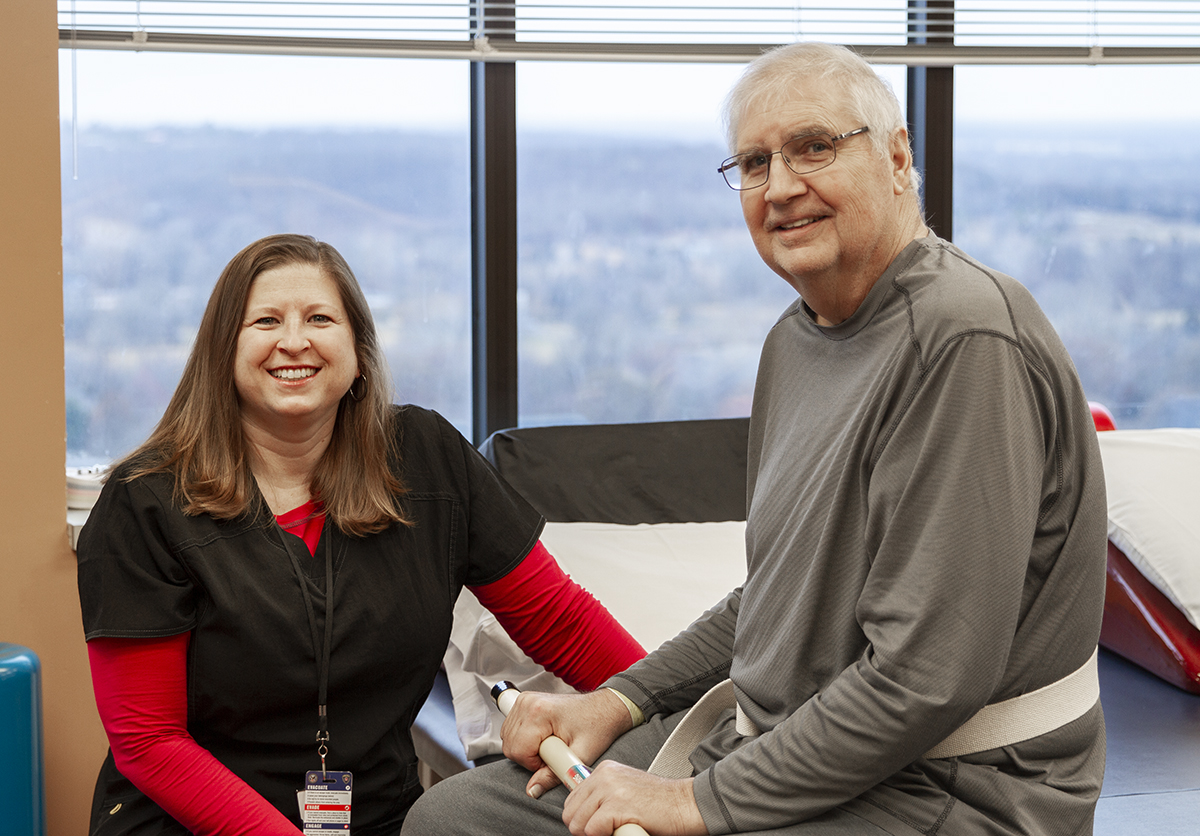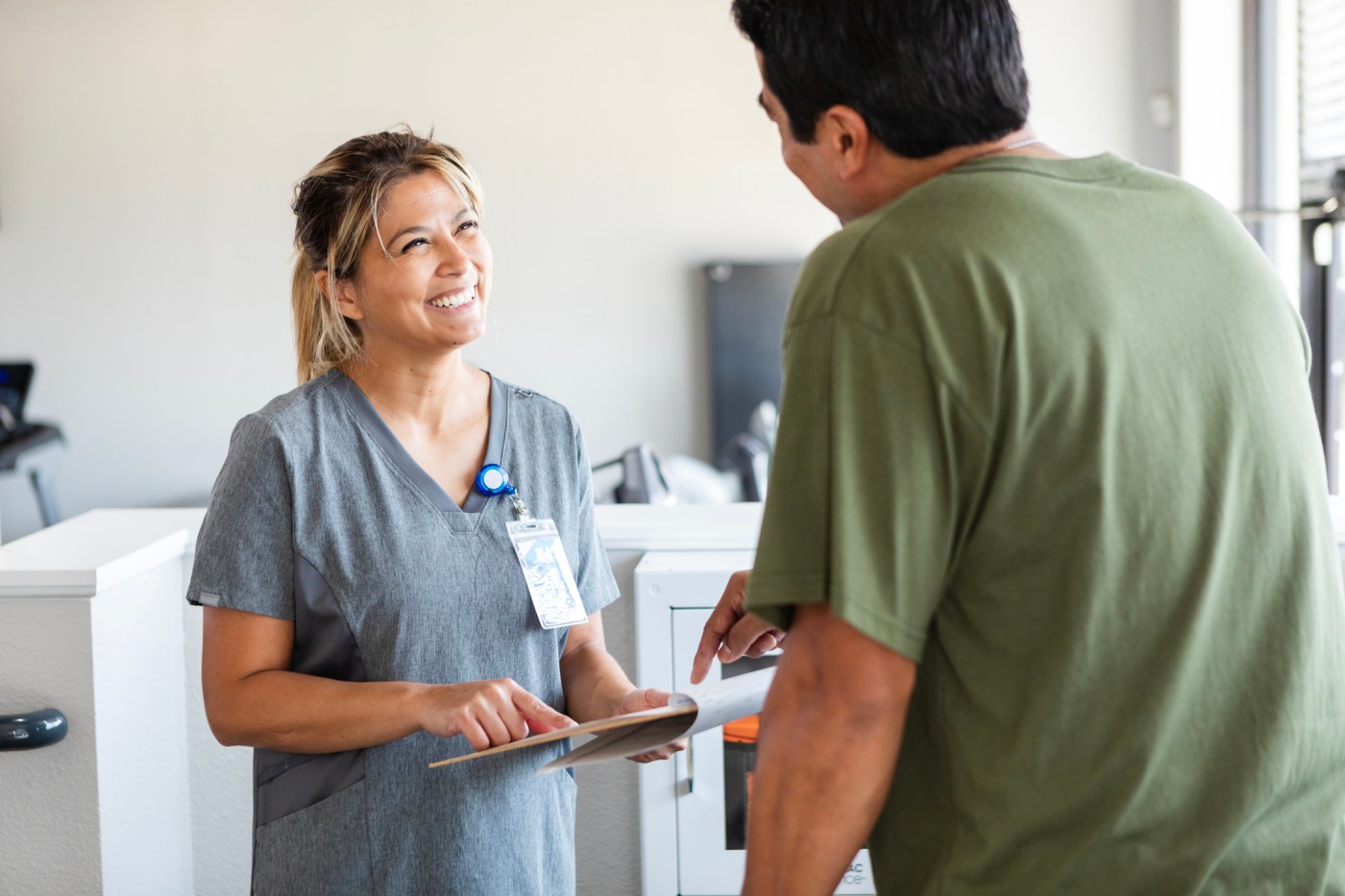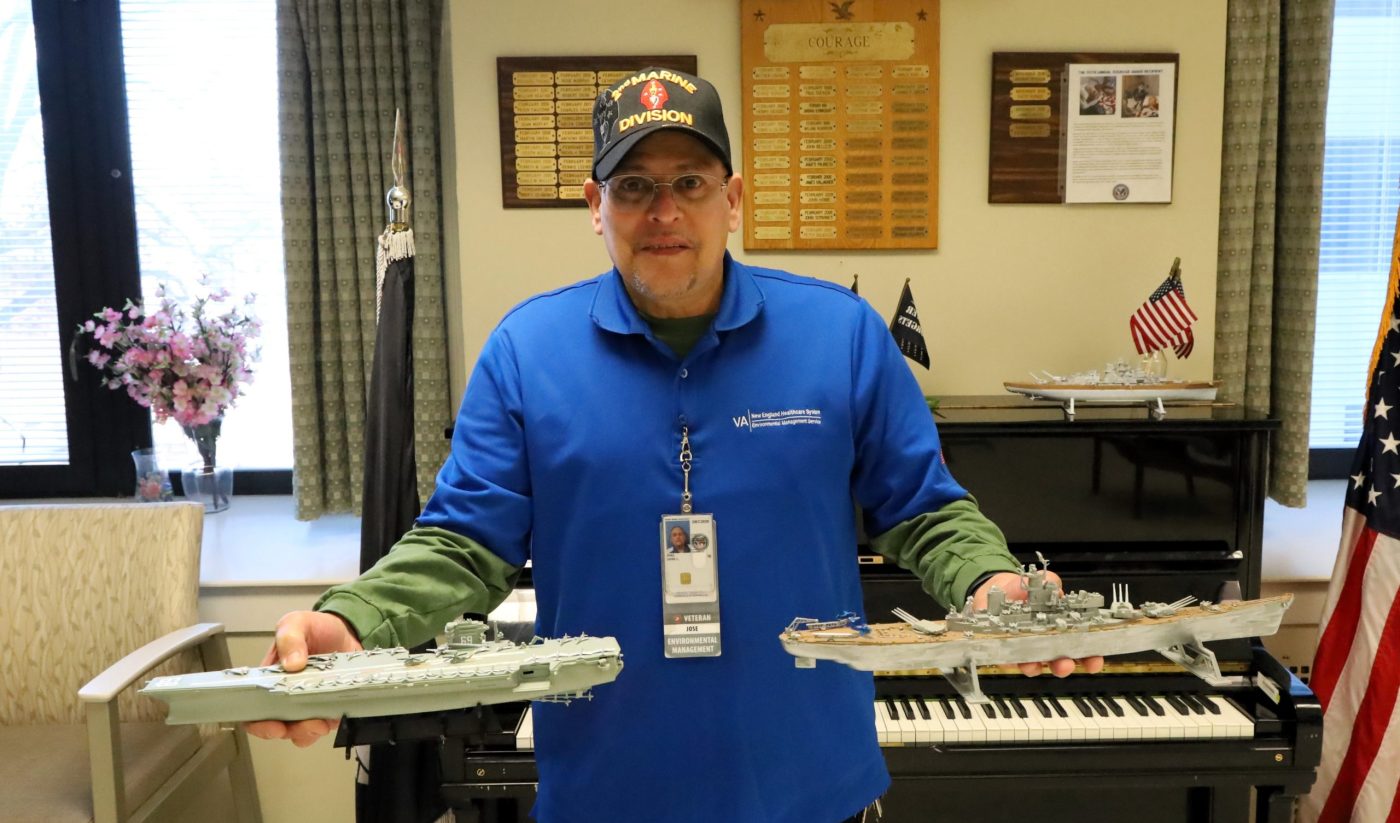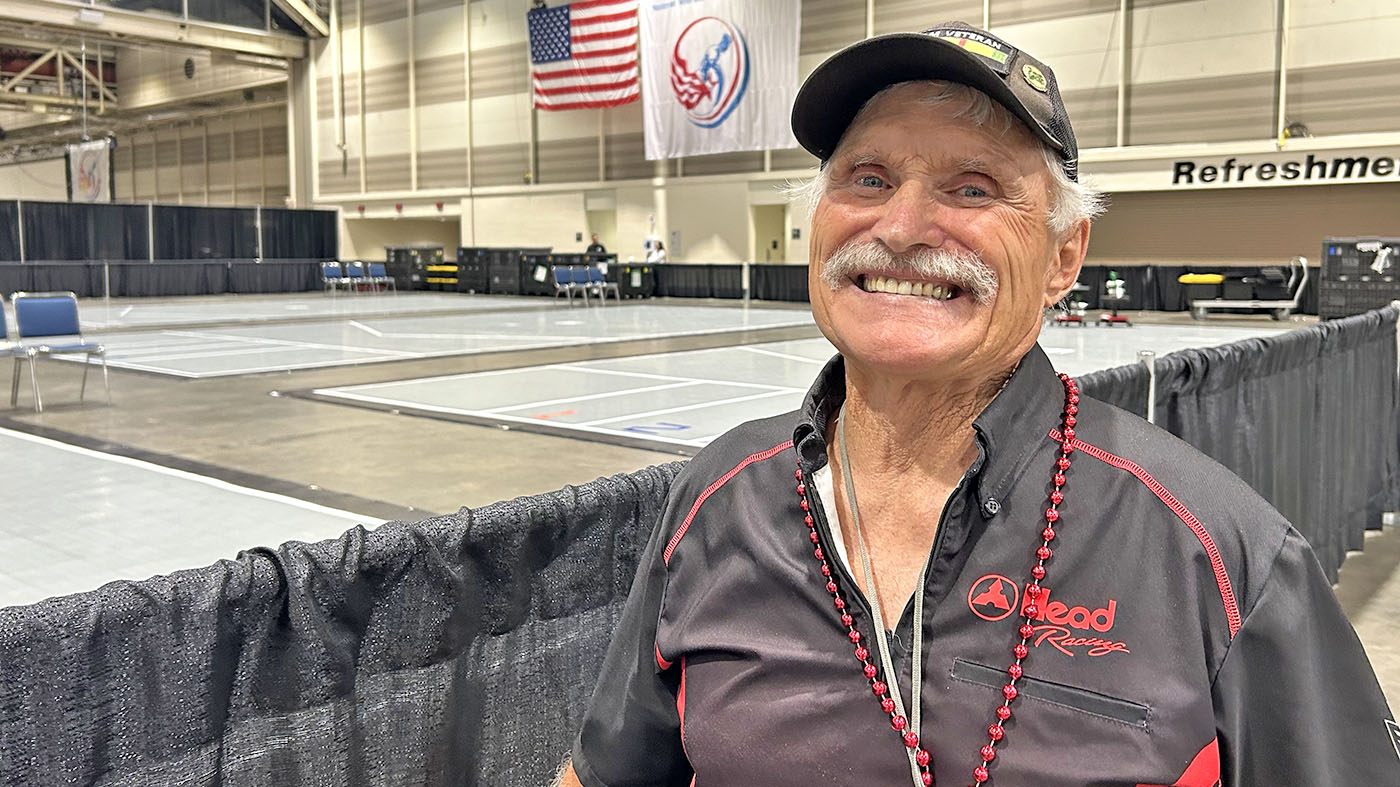If you have been seriously injured, undergone surgery, or experienced a stroke, your doctor may have recommended rehabilitation to help you recover. Each year the Inpatient Rehabilitation (Rehab) unit at the Jack C. Montgomery VA Medical Center helps numerous Veterans regain and achieve their highest level of independence.
Lanise Jamerson, nurse manager who has worked 18 years for VA, says the main goal of rehab is to get Veterans as close to functioning for themselves as possible after illness or injury.

Katie Watson, physical therapist, works with Army Veteran James Fast in the Inpatient Rehabilitation Unit before he is discharged to go home.
“I don’t think people realize how well inpatient rehab works to get people back to their normal lives,” said Jamerson. “My husband had a stroke and it really helped us when we got home. We want our Veterans to realize it not only helps them as the patient, but their loved ones as well.”
The hospital’s 15-bed Rehabilitation Unit provides acute rehab services 24 hours a day, seven days a week. The team consists of professionals, skilled in many different areas, who are available to provide service to Veterans in harmony with other providers at VA.
Dr. David Jennings, physiatrist, moved to the VA just over a year ago from the private sector and says he really loves the work he gets to do here.
“The VA is a smaller, more connected setting, so when someone leaves rehab, I can tag their Primary Care provider in the notes,” said Jennings. “We want to help our Veterans accomplish their goals and get home. We do what we can to help them be successful.”
Customized care plan
Rehab partners with Veterans, their families, and caregivers to set goals and create a customized care plan. Plans may include family training and educational support to help with a safe transition home, something Army Veteran James Fast and wife Debbie recently had experienced.
Fast, who served as a military policeman from 1972-1974, was discharged from the Inpatient Rehab Unit at the end of January, after spending 157 days in various hospitals.
“All I can say is that I’ve had blessings and miracles,” said Fast. “My experience at the VA has been very good, and everyone has been so positive. They gave me the incentive and motivation to keep pushing. No one thought I would be this far and it’s amazing. I’m sore and tired, but it’s worth it.”
Fast’s wife, Debbie, has been by his side watching him go through one health issue after another, including a stroke, blood clots, and a brain bleed.
“We’ve been on a long journey, but the care we have received in rehab at the Muskogee VA has been wonderful,” said Debbie. “The aides, therapists, nurses, doctor, social worker, and everyone else involved just made it an enjoyable experience. This was the first place I felt comfortable to leave him by himself at night to stay home and do things I needed to do. He was barely walking a step or two when we first got here, but now he can stand, sit, get up out of the bed and is walking with his walker. It is amazing what all they’ve done, and we just feel so blessed to have had the opportunity to come here.”
Tiffani Mathews is a Public Affairs TCF Intern at the Eastern Oklahoma Health Care System
Topics in this story
More Stories
One strategy credited for the improvement is a focus on building trust and stronger patient-provider relationships.
Army and Marine Corps Veteran started making models after being hospitalized at Connecticut VA.
Veteran Hank Ebert is a bit of a superstar in the National Veterans Wheelchair Games. He has been attending since 1993.







Interested in meaningful position that is challenging and motivates my skills